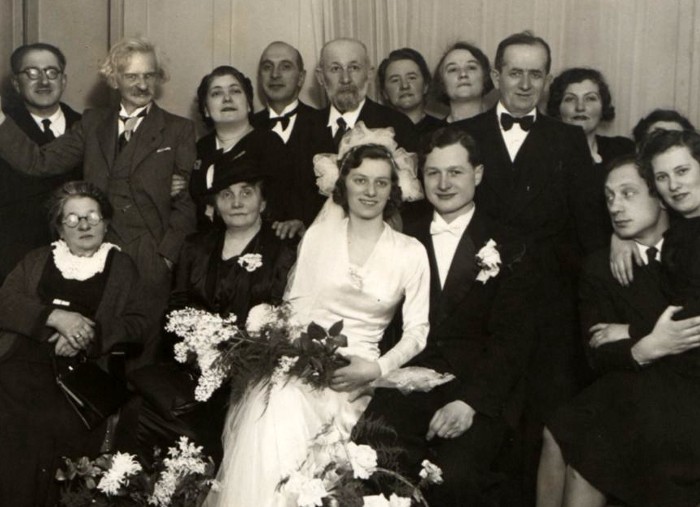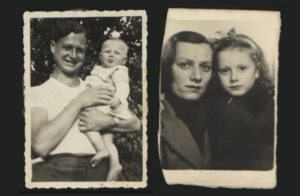United States Holocaust Memorial Museum
Medium
Feb 4 2022
When Raisa “Rose” Steinberg and Max Feld were courting, writing kept their relationship alive while they lived in different cities. They met at their Jewish boarding school for deaf people in Berlin. After graduating in 1932, they stayed in touch.
“We sent love letter, after love letter, after love letter,” Rose recalled through a sign language interpreter in her 1997 testimony. She had moved from Warsaw to Paris with her family, and Max initially remained in Germany. Eventually, in 1937, Max fled Nazi Germany for Paris.
The couple married in 1939. Germany invaded France in May 1940, and their daughter, Esther, was born in December. Under Nazi occupation, Jews were subjected to restrictions and foreign Jews in particular were not safe in Paris. Max, Rose, and Rose’s parents and sisters were required to register as Jews. “We were all afraid every day,” Rose said. “We lived in fear all the time.”
Max was arrested in May 1941 while at work as a dental technician. “They took Max,” Rose recalled. “I was crying. I had a little baby. I was heartbroken.” A few hours later, he came back with the police and was allowed to pack some belongings.
“He kissed the baby and took a picture of the three of us and put it in his pocket to remember us,” she said.
Separated again, Max resumed corresponding with Rose, but their letters took on a decidedly different tone. He had been imprisoned at an internment camp in France, in Beaune-la-Rolande.
Media: Max Feld with his infant daughter, Esther, circa 1941, and Rose with Esther. —US Holocaust Memorial Museum, gift of Esther Feld Weisel
“I received a letter from him from the camp, and it gave me permission to visit him.” She and Esther traveled there along with her mother and sisters and stayed nearby for a couple days. “We would talk outside on the grass through the fence” while the guards were watching.
In January 1942, Rose received a postcard from Max wishing her and Esther, then only one year old, “a happy and healthy year.” The optimistic greeting belied the troubling image on the reverse — Max’s barracks in the internment camp.
In all, Rose and her family visited Beaune-la-Rolande three times, but then Max told her in a letter that he was being sent to another camp, he did not know where.
In Paris, Rose was forced to work at a factory making coats for the German army. When she received a warning to leave Paris, she fled to the French countryside with Esther, her mother, and her sister.
Part of the time they were living in hiding, Esther stayed separately with a non-Jewish couple. The others spent months in the couple’s basement. “I had no concept of time, it was so dark down there. … We had to be completely quiet. … It seemed like it was an eternity.”
After about nine months, American soldiers came to the house where they were hiding. “It was the Americans. We were so happy. We were free.”
Upon returning to Paris in 1944, Rose found their apartment had been emptied. She later learned that Max had been deported to Auschwitz in mid-1942 and killed there in September 1942 at age 27. Her father, Michel, was also killed in the Holocaust.
Rose and Esther immigrated to Venezuela and then to the United States. Rose married Ted Rosman and she and Esther became American citizens. Rose died in 2001. Esther lives in California and she and her husband have two sons.
Rose said it was important to her that her family not forget Max, her “sweetheart.”
“I want them to remember Max.”






